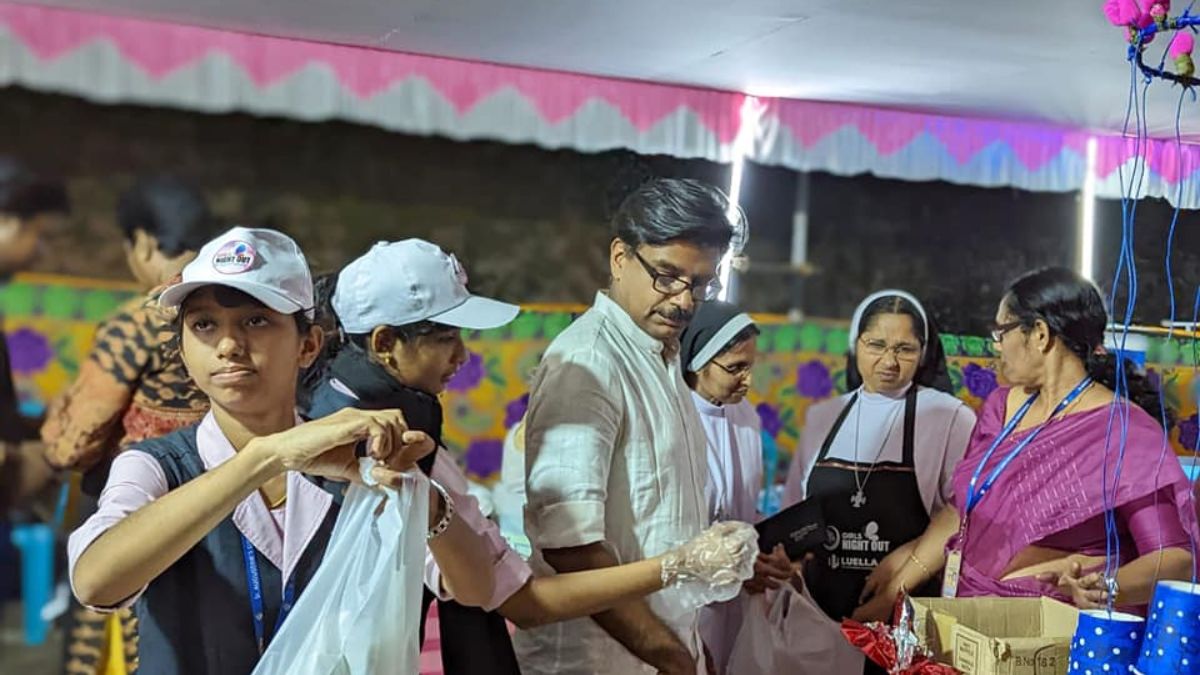Recently, Muvattupuzha in Ernakulam district hosted a Girls Night Out campaign event. An initiative of MLA Mathew Kuzhalnadan, there were food stalls, music performances, Zumba, a women’s marathon and much more to encourage women to enjoy nightlife.
This event took place the very same week as the news about the human sacrifice of two women in another part of the same state.
As India continuously ranks high in the list of countries most dangerous for women, how much do steps like these actually improve the situation on the ground?
As a woman who grew up in suburban Cochin, it was drilled into me from childhood how the world is extra dangerous for a woman. I was in my late teens when the Nirbhaya rape happened in Delhi and I will never forget hearing the reverberations of “Why was that poor girl out alone after night?” from a relative while listening to the news.
Even after turning 18, making me a legal adult, the college hostel I lived in had a strict 7 pm curfew, and the warden prided herself to be the “protector of morals”. Later, when I joined the workplace, I found out that I needed special permission from my manager if I had to stay back after 7 pm in the office. However, the men who joined with me had no such restrictions. One month in, I remember hearing one of them recounting the story of how he stayed back late till 1 am to help a senior engineer with a client issue.
When it comes to women’s rights, Kerala has a lot to be proud of. Whenever discussions come up, I am eager to parrot the statistics that give my state a leg up in the imaginary battle royale of the constituents of the Indian Union: “We have the highest literacy rate, the lowest infant mortality rate, and a very good sex ratio.”
Indeed, numerous social and political movements over the years have seen more women join the workforce. Kudumbashree, the women’s collective juggernaut, has uplifted the lives of countless women while giving them a support system and way to earn their keep.
But while things look rosy on the surface, the deep underlying trench of patriarchy in society is an ugly secret we ignore. And as with every other state in India, Kerala has its fair share of chilling stories of sexual violence committed against women. These headlines pop up every so often and add fuel to the fire of the notion of “our girls need better protection”
There’s an idea of the perfect Malayali woman. She doesn’t go out alone after sunset – why would she? She studies well, but she also knows how to take care of her parents and in-laws, cook and manage a household. She doesn’t wear makeup, she’s naturally beautiful (fair), mild-mannered, and soft-spoken, the paragon of womanhood, the Malayali Manka. Kerala treats women well, yes, but we still don’t treat them as equals. We are never given the same space to make mistakes and learn from them. Any real-life woman who deviates from this unattainable standard is made aware of her transgressions, in excruciating detail, from every part of society.
Women are sometimes the strongest enforcers of this deeply rooted patriarchy judging each other harshly for their failures. Thus, in place of a sisterhood that supports each other, sometimes, the quest to become independent can be a lonely road without the right support system.
My mother has lived all her life in Cochin and was happy to take part in the celebrations and the midnight run. However, when asked if this gave her the courage to walk alone outside at night she was quick to say no to the idea. While I no longer live in India, my parents never cease to request that I get back home by sundown, and failing that, I text them, however late in the night it is. It’s been years since I moved abroad but these habits, built out of fear for my safety are something unlikely to change until the day we die.
As an expat, as I connect with other South Asian women, I hear more and more about how they enjoy their first taste of freedom. Back home, many have families who go above and beyond “protecting” them that they feel limited. Unlike the men, they do not have fond memories of spontaneous weekend trips or nights where they had a drunk hangover at a friend’s place. There is a serious level of brain drain happening amongst a certain section of society, especially the women who are ready to brave a whole new world for the promise of freedom and adventure that they are denied access to back home under the guise of security and protection
Changing problematic gender narratives entrenched in society takes time. As the state makes progressive steps toward gender neutrality, it’s disheartening to see the resistance against it, with a political leader claiming that co-ed classrooms “are against Indian culture and will breed anarchy”.
While the good intentions behind the Girls Night Out event are clear, there are deeper changes needed to bring more agency and security to women in every section of society. While Kerala might be better poised to make these changes than some other states, it’s still going to take a while to transition out of the arbitrary rules set in place to protect women because “men will be men”.
Keerthana Krishnan is a software engineer from Cochin, Kerala.
Featured image: Facebook/Mathew Kuzhalnadan

